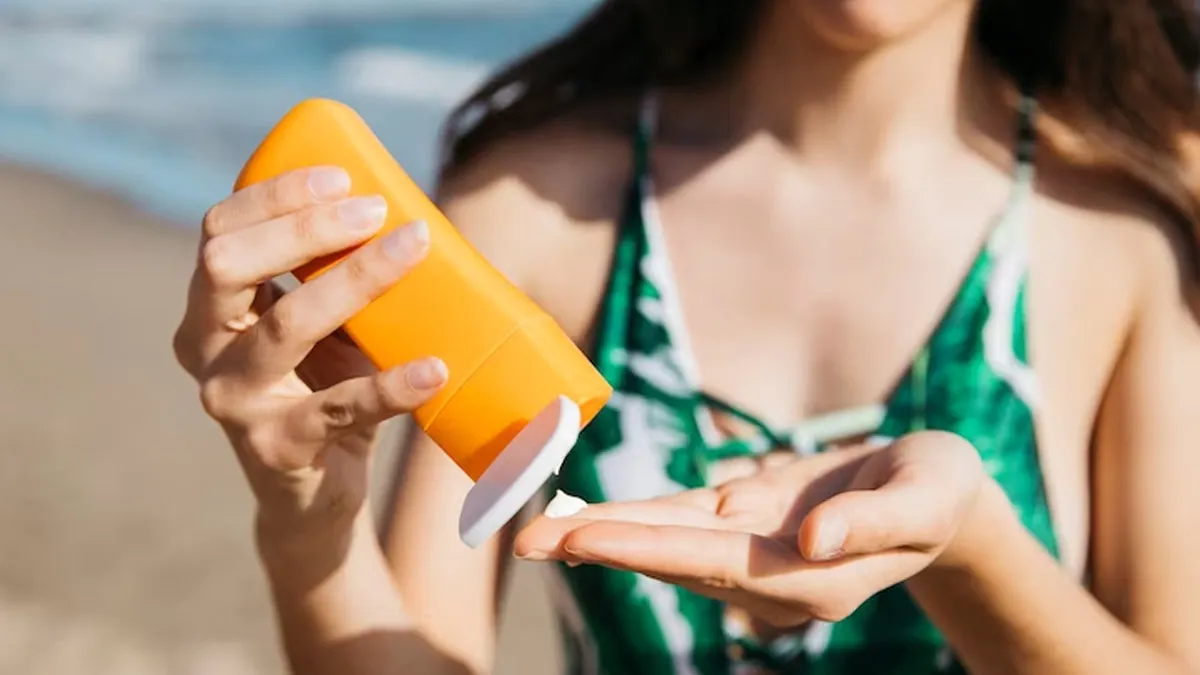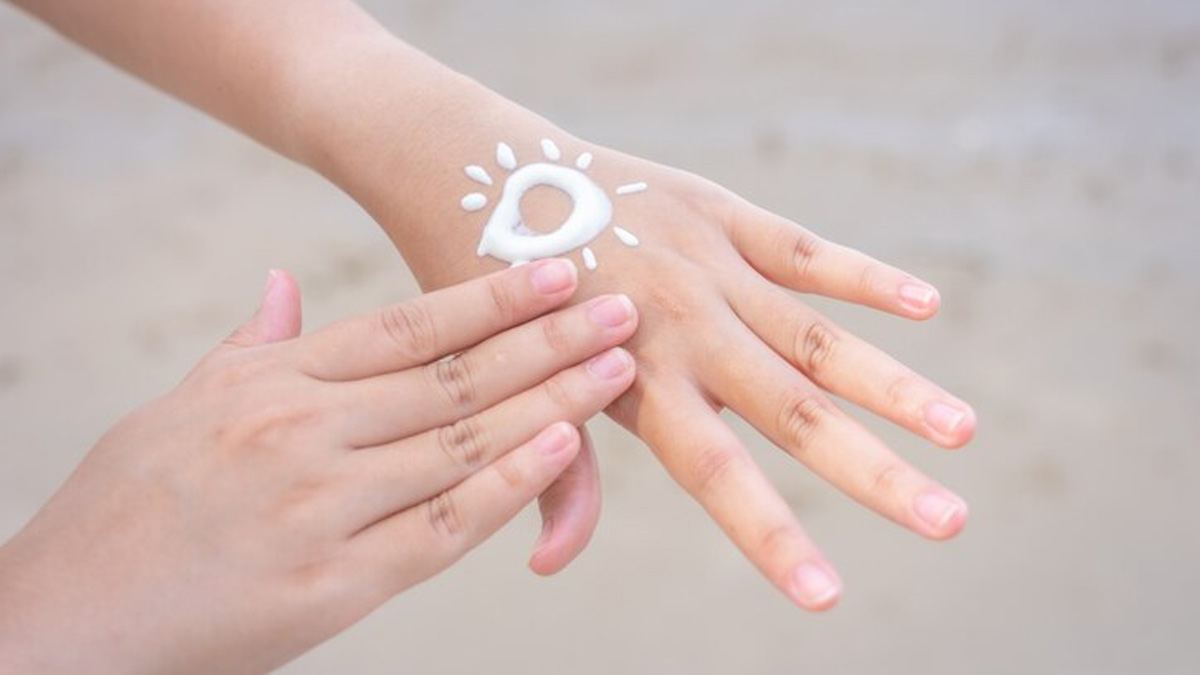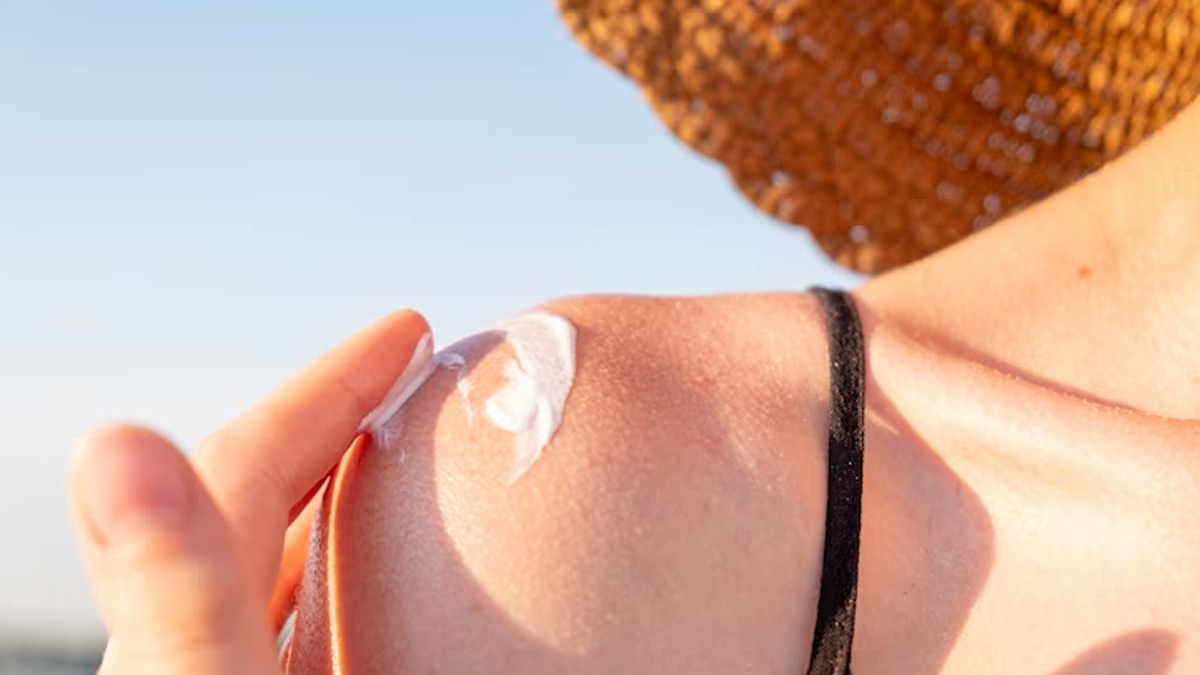
Sunscreen is crucial to skin protection, shielding us from harmful ultraviolet (UV) rays that can cause sunburn, premature ageing, and even skin cancer. However, many people are now looking for natural alternatives to conventional sunscreens due to concerns over chemical ingredients, environmental impact, and skin sensitivity. But do natural options actually work? Here’s what you need to know.
Table of Content:-
Understanding UV Protection Through Expert’s Lens
In an exclusive interaction with the editorial team of Onlymyhealth, Dr Sanjeev Gulati, Department of Dermatology, Sharda Hospital - Noida, explained that the sun emits UV radiation, which is divided into UVA and UVB rays. UVA rays penetrate deep into the skin and contribute to ageing and long-term damage, while UVB rays are responsible for sunburns. Effective sun protection should block both types of radiation.
Conventional sunscreens contain chemical or mineral-based ingredients. Chemical sunscreens absorb UV rays and transform them into heat, while mineral sunscreens, like zinc oxide and titanium dioxide, act as physical blockers by reflecting UV rays away from the skin.

Also Read: Are Vaccines Safe For Your Baby? Expert Shares What Every Parent Needs To Know
Natural Sunscreen Alternatives
If you’re looking for natural alternatives, here are some expert-approved options that provide a level of sun protection:
1. Raspberry Seed Oil
Raspberry seed oil has been studied for its natural SPF properties, with some research suggesting it offers protection comparable to SPF 25-50. While it provides some UVB blocking, it is less effective against UVA rays and should not be relied upon alone for sun protection.
2. Carrot Seed Oil
Carrot seed oil is often cited as a natural sunscreen ingredient. It has antioxidants and some UV-blocking properties, but its actual SPF level is uncertain, and more research is needed to confirm its effectiveness.

3. Coconut Oil, Olive Oil, and Shea Butter
These oils offer minor sun protection, with an estimated SPF of 2-8. While they can provide some barrier protection and hydration, they do not offer broad-spectrum UV coverage and should not replace sunscreen.
4. Aloe Vera
Aloe vera is widely known for its soothing properties and is often used to treat sunburns. However, it does not offer significant sun protection and should not be used as a primary barrier against UV rays.
5. Non-Nano Zinc Oxide
Zinc oxide is a mineral sunscreen ingredient that provides broad-spectrum protection. If you’re looking for a natural alternative, opt for a homemade sunscreen recipe that includes non-nano zinc oxide, as it physically blocks both UVA and UVB rays.
Also Read: Are Vaccines Safe For Your Baby? Expert Shares What Every Parent Needs To Know
Lifestyle and Behavioural Sun Protection
Dr Gulati also suggested that while natural ingredients have some level of UV protection, the best approach to sun safety includes lifestyle choices such as:
- Avoid direct sunlight during peak hours (10 AM to 4 PM).
- Wear protective clothing like long-sleeved shirts, wide-brimmed hats, and sunglasses to reduce UV exposure.
- Use UV-blocking accessories such as umbrellas and UV-protective clothing to offer additional layers of defence.
Bottomline
While some natural oils and ingredients provide limited SPF, they do not offer the same broad-spectrum protection as commercial sunscreens. For optimal skin safety, dermatologists recommend using a mineral-based sunscreen with non-nano zinc oxide or titanium dioxide, especially if you’re looking for a natural and reef-safe option.
Lastly, natural alternatives can complement sun protection strategies but should not replace traditional sunscreen entirely. A combination of shade, protective clothing, and mineral sunscreens will offer the best protection for your skin.
Also watch this video
How we keep this article up to date:
We work with experts and keep a close eye on the latest in health and wellness. Whenever there is a new research or helpful information, we update our articles with accurate and useful advice.
Current Version